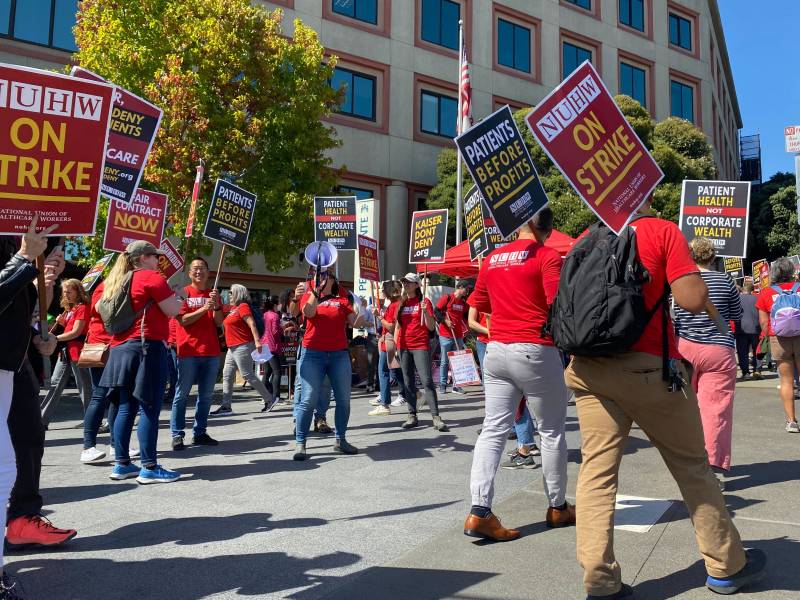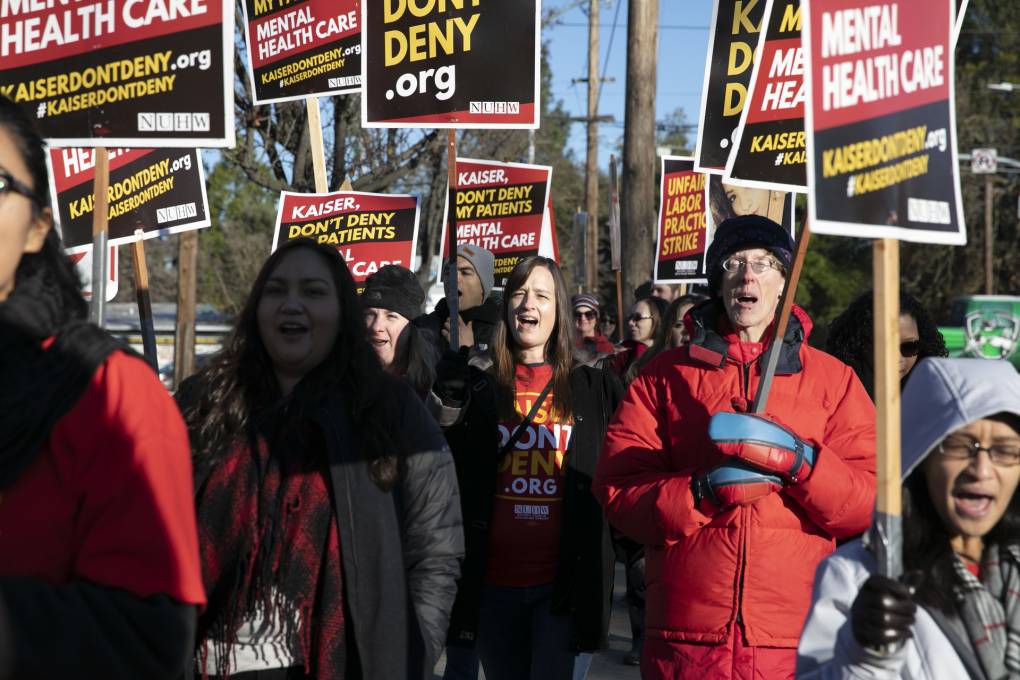“We have people waiting six to eight weeks to get an appointment,” he said.
Petaluma clinical psychologist Alexis Petrakis, also picketing in San Francisco, echoed Chen-Harding’s comments about the wait times, describing her caseloads as unrelenting.
“I meet somebody new, they tell me their story, and maybe they even are honest about trauma that they’ve experienced,” she said. “I try to find a 30-minute phone call just to check in, but it’s not the care that I know that they deserve.”
Deb Catsavas, Kaiser’s senior vice president of human resources in Northern California, said in a statement Sunday that the company has hired hundreds of new mental health workers, including 200 since January 2021. She also pointed out that the shortage in mental health care professionals is happening nationwide.
There are two main issues, Catsavas noted. “One is wage increases and the other is the union’s demand to increase the time therapists spend on tasks other than seeing patients,” she said. “The primary role — and essential need — for our therapists is to provide mental health care and treat our patients.”
The union is demanding that nine hours per week be allotted for administrative work, which would leave only 31 hours to see patients, the company said. It said it proposed increasing the time for administrative tasks from 6 to 7.2 hours, leaving 32.8 hours to see patients.
“Our patients cannot afford a proposal that significantly reduces the time available to care for them and their mental health needs,” Catsavas said. “In recognition of our therapists’ concerns and priorities, we have proposed an increase in the scheduled time allocated to administrative tasks, but the union is demanding still more administrative time.”
But Chen-Harding argued that the time in question is actually important work related to patient care.
“What they’re calling administrative time, it’s actually time when I am calling people who are in a crisis. It may be time when I am learning about the patient that I’m about to meet with,” he said.
A shortage in mental health clinicians has been a sticking point between the company and the union for years. In December 2019, Kaiser mental health care workers held a five-day strike over staffing shortages.
Catsavas said Kaiser recently reached an agreement with the same union in Southern California, representing about 1,900 mental health professionals.
Kaiser said some clinicians will remain on the job during the strike. It also has expanded its network of “high-quality community providers and will continue to prioritize urgent and emergency care” through the duration of the strike, it said, adding that some nonurgent appointments may need to be rescheduled and patients whose appointments may be affected will be contacted directly prior to the date of the appointment.
The union said state law requires Kaiser to pay for out-of-network services if it’s unable to provide urgent mental health appointments within 48 hours, and nonurgent appointments within 10 business days, unless the therapist determines that a longer wait would not be detrimental to the patient’s health.
No date has been set for further negotiations.
This story includes reporting from The Associated Press, Bay City News and KQED’s Lesley McClurg.

